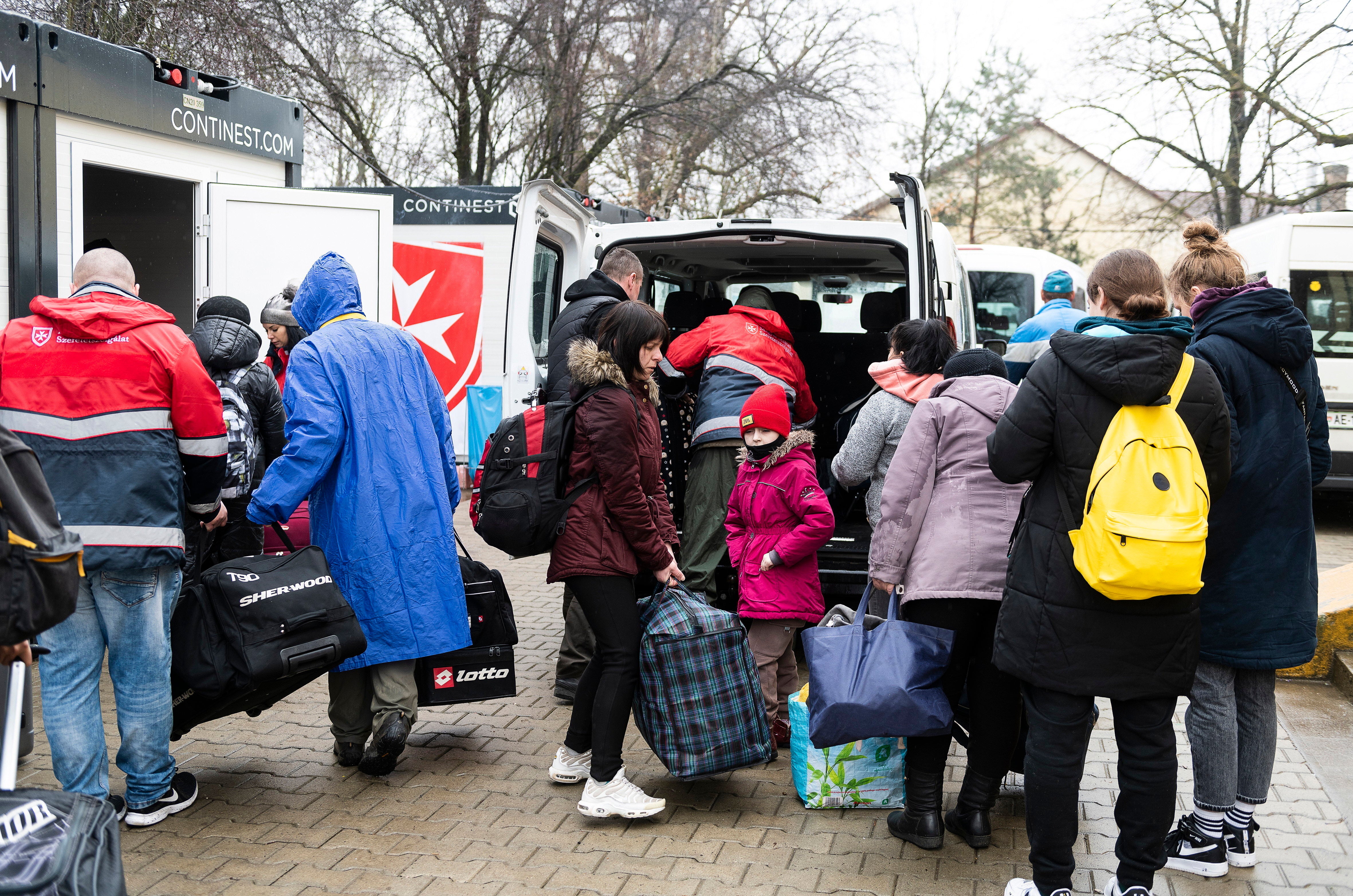UK mother raising money to help people with autism fleeing Ukraine
Dr Annie Clements said the thought of trying to get her son, who has autism, out of a war zone keeps her awake at night.

Your support helps us to tell the story
From reproductive rights to climate change to Big Tech, The Independent is on the ground when the story is developing. Whether it's investigating the financials of Elon Musk's pro-Trump PAC or producing our latest documentary, 'The A Word', which shines a light on the American women fighting for reproductive rights, we know how important it is to parse out the facts from the messaging.
At such a critical moment in US history, we need reporters on the ground. Your donation allows us to keep sending journalists to speak to both sides of the story.
The Independent is trusted by Americans across the entire political spectrum. And unlike many other quality news outlets, we choose not to lock Americans out of our reporting and analysis with paywalls. We believe quality journalism should be available to everyone, paid for by those who can afford it.
Your support makes all the difference.A mother is raising funds to help neurodiverse people fleeing the Russian invasion of Ukraine, saying the thought of trying to get her autistic son out of a war zone keeps her awake at night.
Dr Annie Clements is the founder and chief executive of Autism & ADHD, a not-for-profit social enterprise which provides support, information and training for adults and children who are living or working with neurodiversity.
She has started a fundraiser with the aim of providing resources both for those attempting to leave Ukraine as well as people on the ground who are trying to help.
She told the PA news agency: “What on earth do you do when you’ve got an autistic child and you’re trying to get out of a war zone?
“It’s hard enough for anybody – obviously I haven’t been through it but you can only try and relate in that situation – but then when you’ve got children with neurodiversity, or even they may be neurodiverse themselves as parents, trying to navigate that is absolutely mind-blowing.”
Dr Clements, who has ADHD, said the work she does with the organisation is inspired by her son Tom, who has autism.
She said: “The thought of trying to get Tom out of war zone literally keeps me awake at night.”
Neurodiverse people may particularly struggle with the uncertainty of the situation, Dr Clements said.
“Very common in the autism world are what we call visual timetables, so they have their day mapped out visually for them, and for children that would be pictorially,” Dr Clements said.
“So in a school situation, they would have pictures about what the day was going to be, to enable them to feel safe, because when you can’t see ahead, it’s actually really scary just in a normal day-to-day situation.
“But when you’re in the situation that they’re in, where there is no certainty about what’s going to happen next and what they’re going to do and how they’re going to manage, it multiplies that by millions almost.”
They don't need to know everything there is to know about autism. They just need some really clear guidelines about what what to do and equally what not to do
Not being able to identify a fixed end-point to the disturbed period could also be difficult to cope with for people with autism, she said.
Through the fundraiser, Dr Clements hopes to be able to produce cards with basic information about autism for professionals working on the ground, so they know how to best serve any neurodiverse people they encounter.
“They don’t need to know everything there is to know about autism,” Dr Clements said.
“They just need some really clear guidelines about what what to do and equally what not to do.”
And she also aims to put information online to help parents of neurodiverse people who are trying to flee the country.
Autism & ADHD is asking for donations to help develop the cards, to get them to where they need to be and to build up their volunteer network.
The organisation also hopes to be able to provide support to any UK households who host a neurodiverse person from Ukraine.
To donate, head to gofundme.com/f/resources-for-autistic-ukraine-families